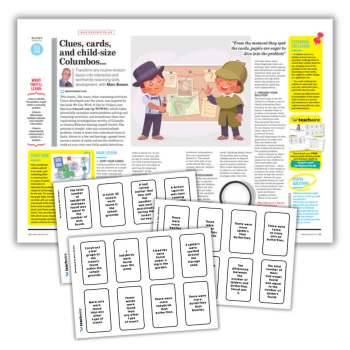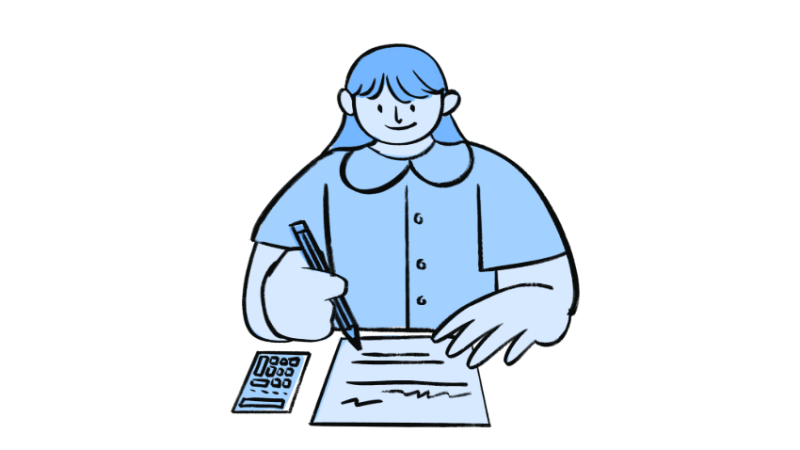Gamification in education – How to use it to motivate all pupils

Ready to level up your classroom? Dive into the world of gamification and explore what it can offer your pupils…

- by Teachwire
- Classroom expertise and free resources for teachers

When you use it thoughtfully, gamification in education can transform your classroom dynamics, motivating children of all abilities and personalities.
By incorporating inclusive, social and exciting game elements, you can create an environment where every child feels valued and engaged…
What is gamification in education?
Gamification in education means using game elements and principles, such as such as points, levels, rewards and challenges, in non-game contexts.
It can also refer to educational software with features such as badges, leaderboards and interactive challenges, designed to enhance student motivation and engagement.
Games are a major part of children’s lives already. The Gaming the System report from the Children’s Commissioner states that 93% of children in the UK play video games. So gamification in education means tapping into something that children already enjoy and see as a worthwhile leisure activity.
What are the benefits of gamification in education?
Gamification in education sometimes gets a bad reputation for only appealing to loud, competitive children, potentially shifting focus from learning to winning.
However, when applied thoughtfully, gamification in education encourages every child to do their best, fosters a sense of belonging, and helps pupils realise their potential.
Game-based learning offers a non-threatening and supportive environment where pupils can practise their skills. It’s designed to offer rewards and incentives to children and help them recognise their own progress.
Games let children repeat activities without being aware of the repetitions because they are being entertained at the same time. Children might take a route through a game which involves moving sideways or even back to a lower level before moving on.
This solves the problem of differentiation for busy teachers and consolidates or reinforces prior learning.
Studies have indicated that when lessons are gamified, pupils’ attention spans increase and those with ADHD are less disruptive and more focused. Pupils see their results immediately so they can check their own progress – this can be very motivating.
It also keeps children engaged and on task, freeing up teachers to provide extra attention or one-on-one tutoring to pupils who need help.
How to use gamification to motivate every pupil
Inclusivity
Allowing children to engage in purely playful activities can be incredibly empowering, even without a specific outcome.
For example, exploring gravity by building tall towers with plastic bricks until they topple over encourages experimentation and resilience. This allows children to try things without fear of the result of ‘getting it right’.
Collecting and earning badges is another powerful motivator for many children and may allow for many different kinds of personalities to try to achieve something outside of learning success.
Create a variety of badges that recognise positive behaviours like kindness, tidiness, completing homework, going the extra mile, or trying something new.
Make it social
Connecting pupils with each other makes activities more exciting and rewarding. Implementing a House system, long used in schools, can help build a sense of identity beyond just the class to the wider school community.
It allows children of different ages to interact, support each other, and work together. Being part of something with an identity can help different children do things for the benefit of the larger group.
Pairing students for competitions can create fairer and more engaging experiences too. For example, matching children of similar abilities for a head-to-head spelling test helps maintain a sense of ‘urgent optimism’, where both competitors feel that they have an equal chance of winning.
An alternative technique to a classic team-based class competition is to introduce a collective goal, such as the whole class reading a combined total of 1,000 books in a term.
This can also unify the whole group, allowing every child to contribute, regardless of their individual achievement level.
It’s a great way of including children who have very different educational abilities. You may also find children helping and encouraging each other to read more.
Unexpected rewards
While some children prefer to know the exact outcome of their efforts, adding an element of surprise can heighten excitement.
For instance, using a spinning wheel of names or a lucky dip to determine who gets to do a special activity can motivate participation.
Limiting the availability and frequency of rewards can also increase their value. A classic example is selecting one child each week to take home a prized soft toy – a privilege that becomes more coveted because it’s rare.
This exclusivity encourages children to adhere to school rules and participate fully in order to qualify for selection to care for the toy.
Setting out the rules
It’s crucial in implementing gamification that the children know what the rules are, these are fair rules and they must be adhered to in order for the game to work.
If children perceive that biases or cheaters have been allowed to interfere with the rules, they will not trust or participate in the game and may be more cynical about the next proposed game.
Anne Lancaster is Kids Product Manager at Sumdog – a games-based maths practice app for children aged 5–14.
Case study: Gamified maths learning for SEND pupils
Children with SEND need time and the perfect environment to practise their maths skills – gamified learning can be the correct answer you’re looking for, says James Akerman…
Some pupils love maths but many find it hard work. Learning the basics requires a lot of repetitive practice, whether it’s number recognition, the four rules, or multiplying decimals by ten or 100.
All primaries try to make learning fun and use concrete methods, but there are only so many times you can cut up a pizza to teach fractions.
Teachers have always needed a big bank of materials that go over the basics until pupils are confident and can get the right answer time and again.
Worksheets have a limited appeal – as we all found out during lockdown – but children need that constant reiteration and that means putting in a lot of hours to develop their skills.
Individual curriculum for a range of maths skills
I work at Arbour Vale School, an all-age special needs school in Slough. While few mainstream primary schools will have pupils with profound and multiple disabilities, you may have pupils who are neurodiverse or have social, emotional and behavioural difficulties that act as a barrier to learning.
We offer our pupils an individualised curriculum in an inclusive school community so we’re always trying to find the right starting point and ways to show progression.
Many children believe they ‘can’t do maths’. As they get older their confidence dips still further because they can’t build on the fundamental concepts they should remember from earlier years.
While revision matters, it’s important to set work which is not just a repeat of what children have done in previous years.
Children can also be reluctant to answer questions in maths in case they get it wrong. Maths questions usually have just one right answer and it may require a good memory to find it. Our pupils struggle to recall number facts and may become mute or be disruptive.
Co-designing fun math games resources
Edtech is a vital pillar of our teaching and learning strategy at our school and as such, we’ve got a history of working closely alongside edtech developers to co-design resources that will effectively meet our teachers’ and pupils’ needs.
We had previously undertaken this with other subjects, but were yet to incorporate this across our maths curriculum. With this in mind, we wanted to integrate a games-based learning platform that would complement our pupils’ unique needs and sustain their engagement.
We worked with game-based learning platform Mangahigh, initially conceived as a mainstream product, to tailor the educational content so it was more accessible for children with SEND.
For example, we reported back that only a few of our pupils would be able to do the activities provided and asked for additional games that started at a lower level. The team developed new content for ages five to seven so we can use it with a broader spectrum of our pupils.
Letting kids practice with online activities
As part of this collaboration, we piloted text-to-speech functions. Sentence-based questions used to make some pupils feel anxious as they struggled to understand what was being asked of them and often gave wrong answers as a result.
However, the read-aloud feature means pupils can listen to the questions as often as they want and this helps them to have a clearer idea of what they are being asked to do.
If pupils give wrong answers, the AI algorithm takes them to a different activity. I’ve been impressed by this aspect of the software because the recommendations really do pinpoint the exact area pupils need to improve.
The analytics have been a powerful tool for us and we focused on this during lockdown when we weren’t seeing all our pupils face to face. It’s not just about seeing how many answers are right and wrong. I was able to check the number of times a pupil had attempted a question or activity so I could judge their mastery of a topic.
Software is not a one-stop solution, but it’s given our pupils a different approach to learning maths, increased their ability to work on their own and given them the incentive to carry on even when they find the subject difficult.
Benefits of game-based learning for pupils with SEND
- Increases pupils’ engagement
- Accessible from home as well as school and can be used on multiple different devices, meaning that children can carry on playing in their own time, improving their maths skills and confidence
- Many games have tools that let teachers check progress and can help with planning future lessons
- The competitive element and leaderboard structure encourage pupils with moderate learning difficulties
- The visual aspect helps students to understand concepts better
- Pupils on the autistic spectrum and those with ADHD particularly benefit – games draw them in and focus their attention
James Akerman is head of ICT at Arbour Vale School. Alongside 15 other special schools, Arbour Vale is part of Orchard Hill College Academy Trust. Follow the school on X at @arbour_vale.
More maths resources
- Browse maths games KS1 ideas and maths games KS2 ideas
- Check out algebra games to play online and offline










